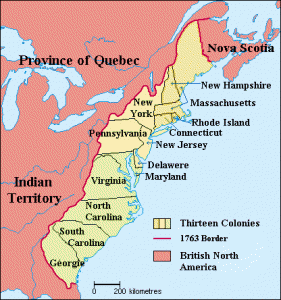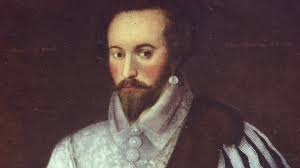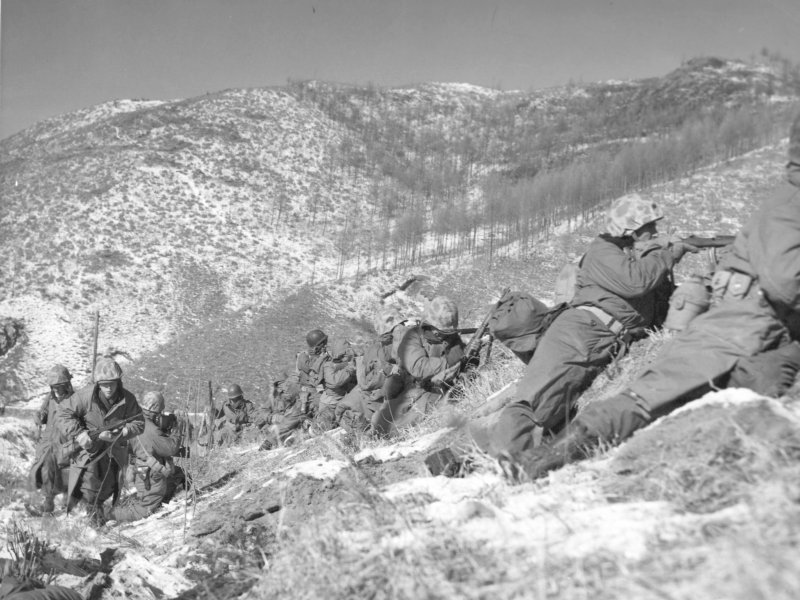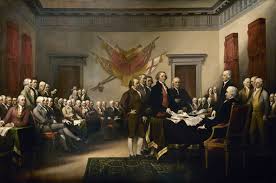After an initial period of disinterest in the New World, the British began a massive colonial push, achieving basic hegemony over the Northern half of the eastern seaboard by the early 18th Century. Once the potential of financial profit was realized, the British came to recognize even more advantages of colonizing the region, especially the noble challenge of participating in a heroic epic, transporting civilization and the Christian religion.
The initial motivation was focused upon profits that could be obtained by privateers. After a three-year period of preying upon Spanish ships bringing bullion from the Americas to Europe, Sir Francis Drake has amassed several million dollars worth of profit. This led British investors to finance even more privateers (Earle, p. 478-479).
Sir Walter Raleigh came back from exploratory excursions, promising extravagant riches. Based upon Drake’s experience, this was a real possibility. In reality, this was an extension of England’s conflict with Spain, but as it played out in the Americas, the potential benefit of investors and those engaged in colonization motivated many settlers. Many envisioned Virginia as a land of great riches, referring to gold and the like; in reality, Virginia was not rich in those sorts of resources (James, p. 4-5).
 Eventually, the attraction to British colonists came to be the opportunity to receive land, carve a lucrative plantation out of the wilderness, and accumulate wealth via agriculture. This would allow the British homeland to rely on her own colonies for natural resources, such as timber and foodstuff, rather than on other, sometimes antagonistic nations. Virginia was assumed to have a similar climate to Spain, and therefore be able to produce similar crops (James, p. 6). Early settlers found that this was not the case and disease and lackluster crops almost led to their failure.
Eventually, the attraction to British colonists came to be the opportunity to receive land, carve a lucrative plantation out of the wilderness, and accumulate wealth via agriculture. This would allow the British homeland to rely on her own colonies for natural resources, such as timber and foodstuff, rather than on other, sometimes antagonistic nations. Virginia was assumed to have a similar climate to Spain, and therefore be able to produce similar crops (James, p. 6). Early settlers found that this was not the case and disease and lackluster crops almost led to their failure.
As Britain continued to spar with Spain, colonization to the New World was also seen as a way for the protestant British to keep an upper hand. Normally anti-Catholic, the British could send her protestant colonists to acquire land, thereby keeping the Catholic Spanish from doing so. This was also seen as a way to curb unemployment in Britain, putting the non-working populace to good use in the competition with the Spanish (Earle, p. 481).
While such a call did not appeal to every person, it did prompt certain adventurous souls to make the effort. The promise of land, wealth, and British anti-Catholic control of North America motivated many to accept the challenge. Some of these simply desired to carry England with them to the New World, while others desired to create something new – a new culture for a new land (Jordan, p. 491). This type of epic endeavor appealed to those who saw themselves in the mold of prior British heroes. For them, the acquisition of wealth, honor, prestige, and British/protestant hegemony was akin to being a warrior (James, p. 4).
The religious benefit of immigrating should also be considered. England desired to be rid of Catholics, and though they were excluded from Virginia, other settlements were more accommodating. This would create a more homogenous religious climate back in England, allowing the religious minorities to have their own colonies in North America (James, p. 10).
Ultimately, the early days of British attempts at colonizing found their genesis in the potential of riches, which never really went away, though the focus changed from privateering, to prospecting, and eventually to agriculture. The opportunity to tame an uncivilized land (as seen by the Europeans) proved too tempting for some hardy adventurers to pass up. As they acquired land, forging their colonies, they were able to push the Catholic Spanish further south, and to establish British Control of the majority of North America.
Works Cited:
Earle, Carville. “Pioneers of Providence: The Anglo-American Experience, 1492-1792.” Annals of the Association of American Geographers , Vol. 82, No. 3 (Sep., 1992), pp. 478-499
James, Lawrence. The Rise and Fall of the British Empire. New York, St. Martin’s Griffin, 1994.
Jordan, Terry G. “Presidential Address: Preadaptation and European Colonization in Rural North America.” Annals of the Association of American Geographers, Vol. 79, No. 4 (Dec., 1989), pp. 489-500









